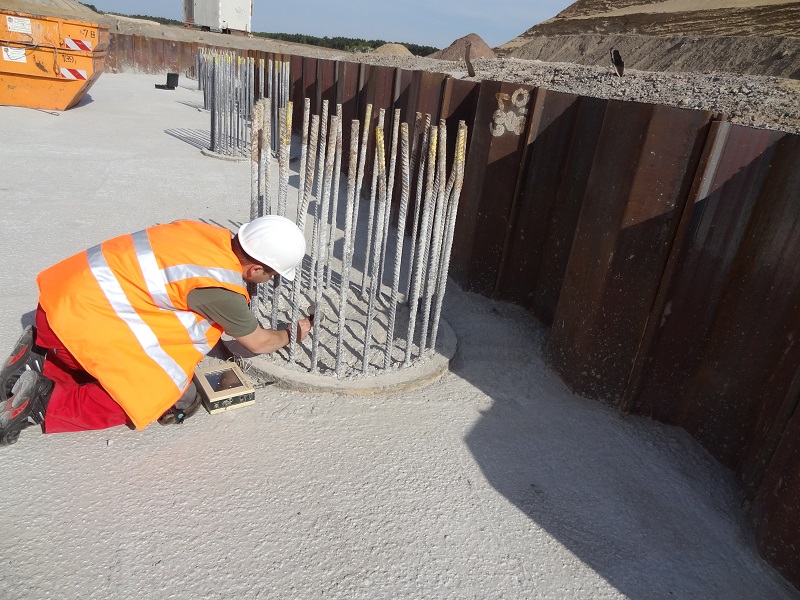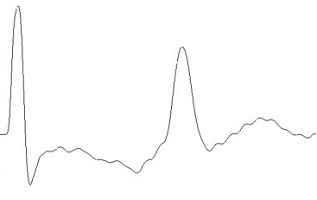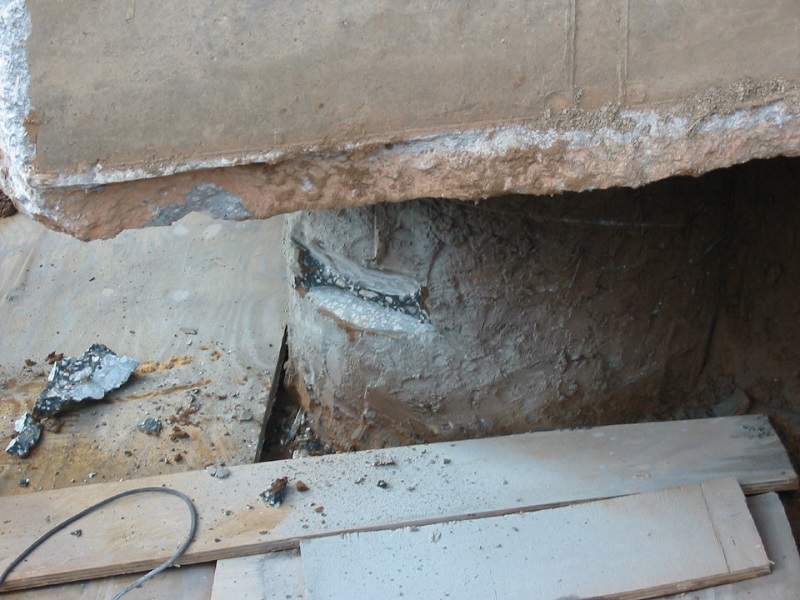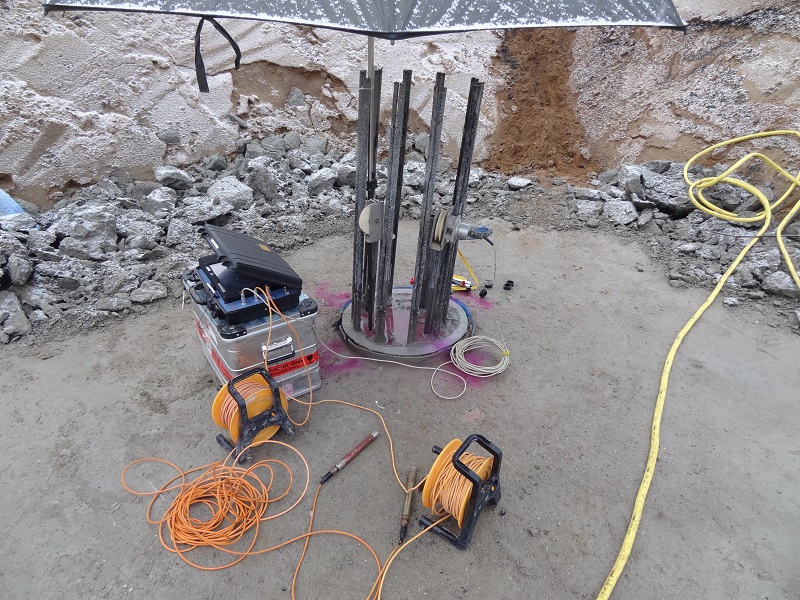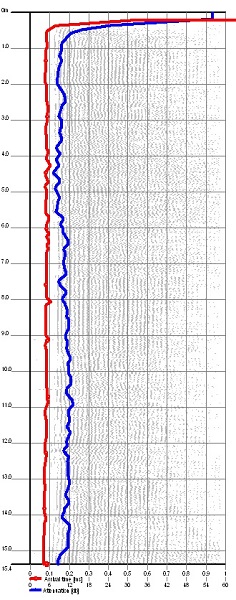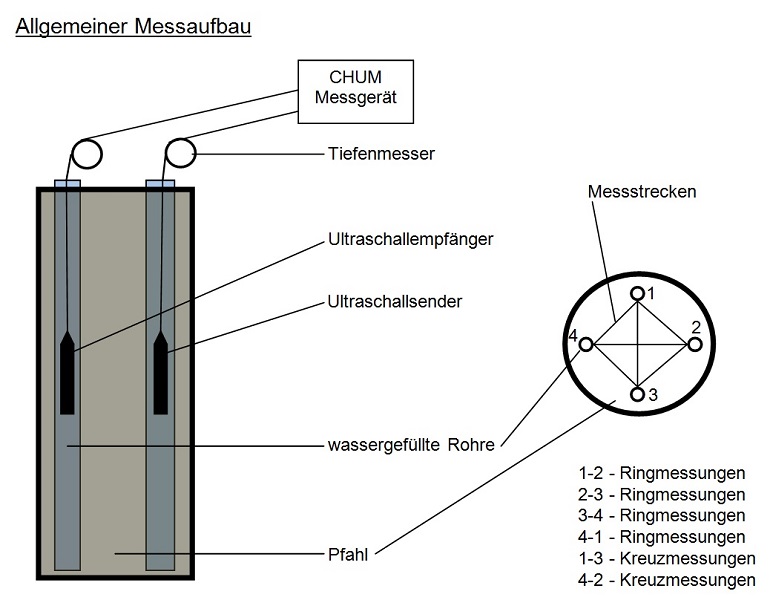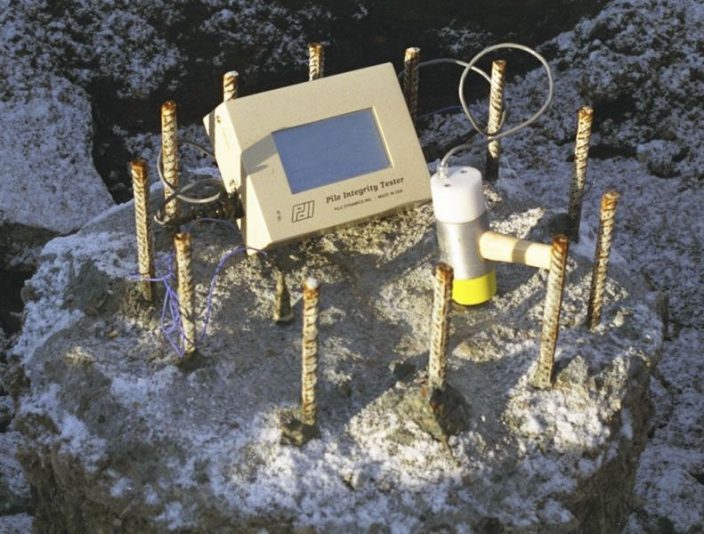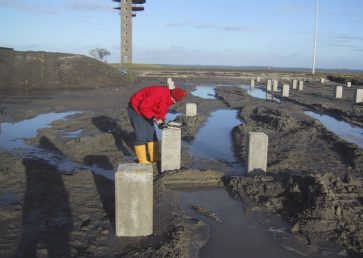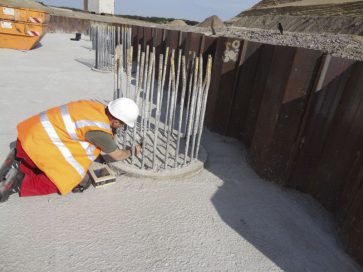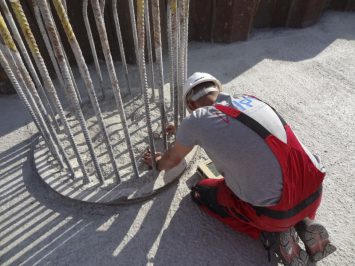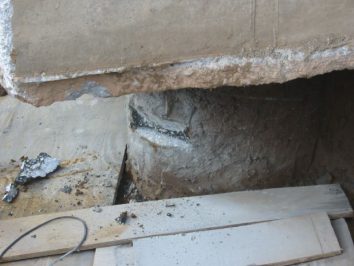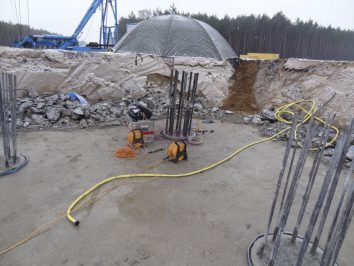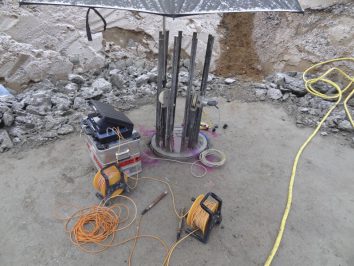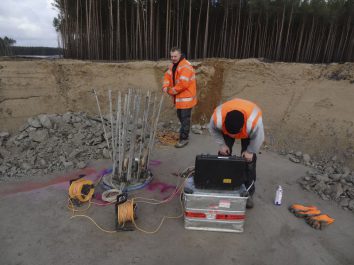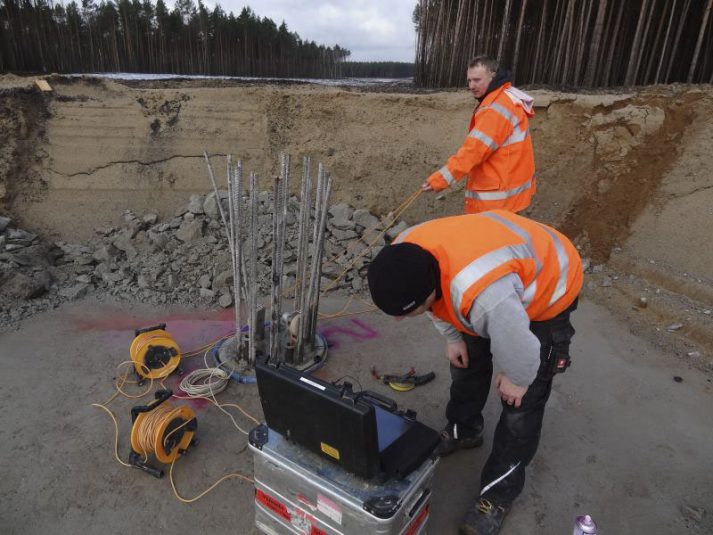Integrity check
Pile testing by IPM Impuls Pfahlmessung GmbH.
Principle of the hammer blow method
Low-strain integrity test
The measuring method is based on the pulse-echo method.
A shock wave is introduced into the pile by striking it with a special hand hammer. This impulse passes through the pile at a material-dependent speed. This range results from the age of the concrete, the concrete composition and the proportion of reinforcement.
If the input signal encounters impedance changes (e.g. cross-sectional changes), echo signals are reflected to the pile head. These are recorded by a highly sensitive transducer and stored and evaluated by a measuring computer.
Principle of the ultrasonic method
Cross-Hole Integrity Check
One transmitter and one receiver probe each are lowered and raised simultaneously in two water-filled measuring tubes. The ultrasonic wave is permanently transmitted by the transmitter in the first measuring tube, passes horizontally through the pile concrete to be tested and is picked up by the receiver in the second measuring tube. The depth is continuously determined by the depth gauge. The results are displayed and stored by the depth gauge.
Our Services
Services:
- Consulting, planning, concept
- Certificates, calibration
- Provision of the measuring equipment
- Implementation according to EA piles or international standards
- Documentation / Evaluation
Equipment:
- 6 PIT (Pile Integrity Tester)
- Acceleration sensor and special plastic hammer
- Cross – Hole – Ultrasonic – Measuring device (CHUM)
- Ultrasonic transmitter and receiver / depth gauge
Implementation:
- Pile integrity
- Pile length
- Changes in cross-section
- Signal running speeds
- Evaluation of the signals according to the recommendations of the “Piles” working group of the DGGT (German Geotechnical Society)
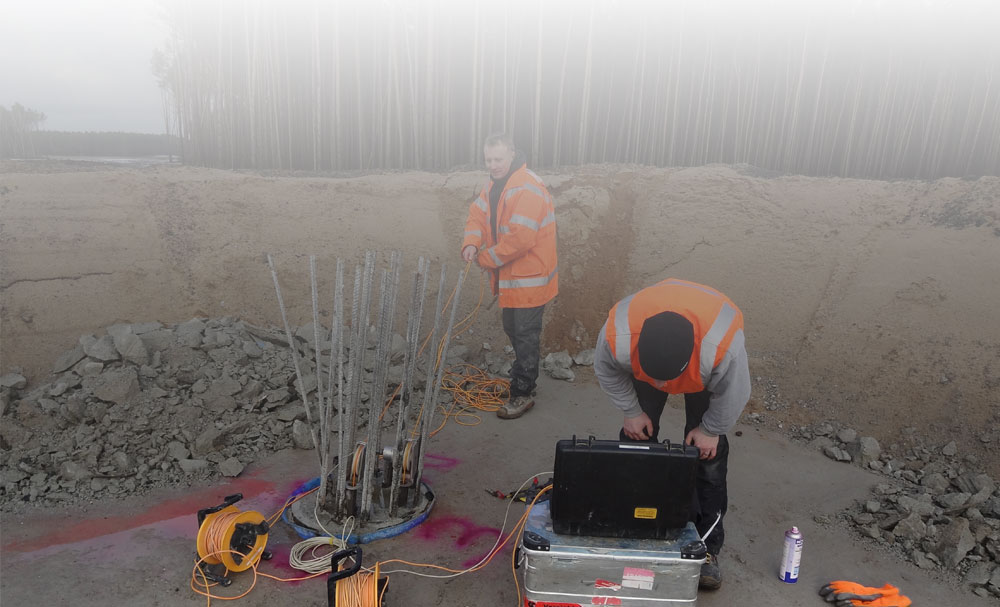
Get in touch with us:
+49 (0) 3621 70 30 31
Photo gallery
References
Our references of integrity testing at a glance:
2018
Number of tested piles: approx. 5600 pieces
Number of construction sites: 104
2017
Number of piles tested: approx. 9100 piles
Number of construction sites: 136
2016
Number of piles tested: approx. 8200 piles
Number of construction sites: 138
2015
Number of piles tested: approx. 6200 piles
Number of construction sites: 97
2014
Number of piles tested: approx. 6400 piles
Number of construction sites: 98

